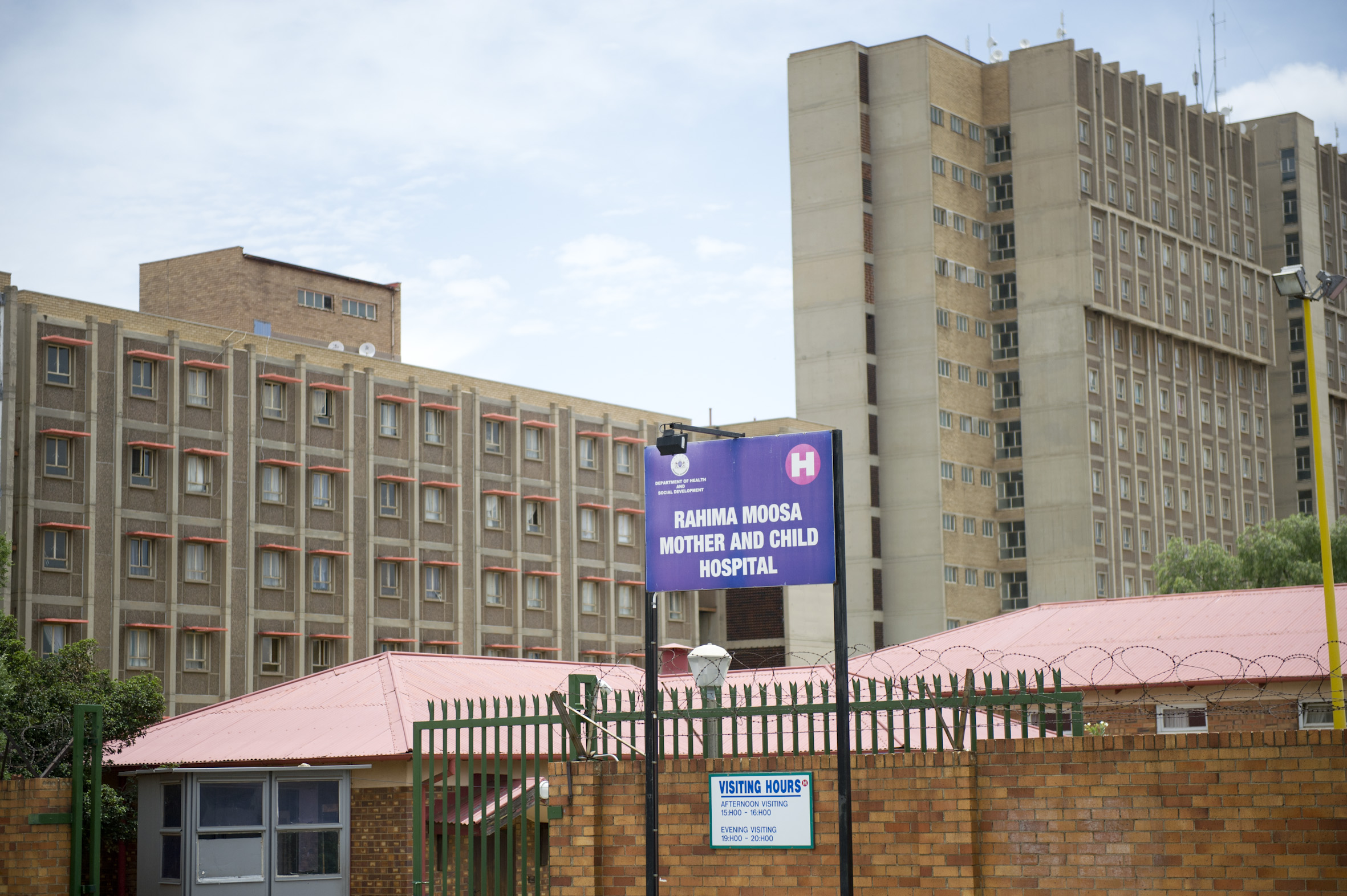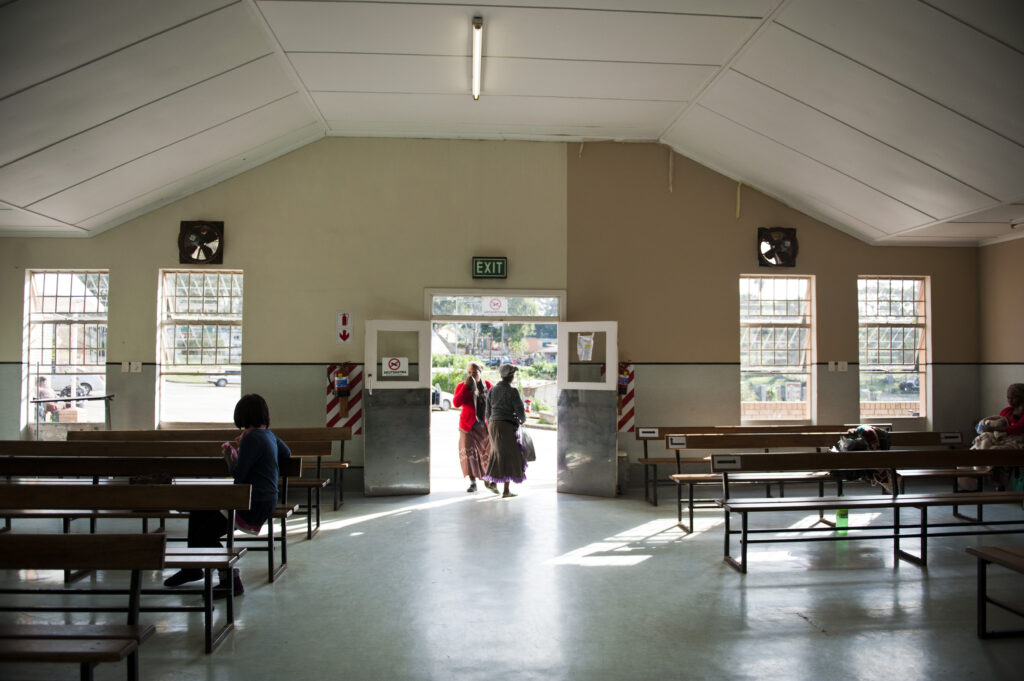- Watch the health ombudsman, Malegapuru Makgoba, present the findings of an investigation into conditions at the Rahima Moosa Mother and Child Hospital in Johannesburg.
- The investigation started in 2022 after complaints about the quality of services; 34 in-depth interviews with patients and health workers at the hospital were conducted.
- Makgoba says three words were mentioned in almost every interview: “dirty”, “filthy” and “unsafe”.
- Our Joan van Dyk is live tweeting the event from our handle, @Bhekisisa_MG.
- Find the health ombudsman full report, released on Tuesday, 14 March, here. Read his PowerPoint presentation here.
In August and September 2022, a nurse at Rahima Moosa Mother and Child Hospital in Johannesburg couldn’t find stock of the antiseptics health workers normally use to clean patients’ skin before abdominal surgery, so she made her own concoction and diluted a type of hand sanitiser with water.
During those two months 11 patients who were operated on developed sepsis, an infection of the blood that can cause organ failure or death if it’s left untreated. They had to be taken back to theatre for “relook” operations — there was no such cases in the prior months.
The nurse didn’t consult with anyone before making the solution. But the senior clinical manager at the hospital also didn’t condemn her actions when he found out about it.
This is according to a report released by the Office of the Health Ombud, Malegapuru Makgoba, on Tuesday. The body, which looks into complaints about the standard of healthcare in South Africa, had been investigating allegations of mismanagement and undignified care there for nearly a year.
The investigation found that it was “unprofessional, unethical and inexplicable” for the nurse to concoct a “self-made solution”, for which there was no scientific evidence that it was either safe or effective.
Her only explanation was: “I ensured there was not much foam.”
The ombud got the first complaint about Rahima Moosa in April, when a video surfaced showing pregnant women sleeping on the floor of the hospital. Then in May, the head of the children’s ward, Tim De Maayer, penned an open letter to the Gauteng health department about the dire conditions at the facility.
Makgoba told journalists about 14 other unsettling findings about the specialist facility, including that there had been little upkeep in the 80 years since the facility was built in 1943.
This has resulted in sewage flowing freely on the hospital campus and “filthy” treatment conditions, among other issues. The ombud’s report recommends that the health department should prioritise maintenance projects at Rahima Moosa.
Who was in charge of keeping the facility running smoothly?
The former chief executive officer (CEO), Nozuko Mkabayi. She was not at work for a total of 98 days in 2021 and 2022, the hospital’s records show.
The report found that Mkabayi was “stressed” and “lonely” and that she needed more support from the Gauteng health department. Appointing her to this position was not in the best interest of the facility — or of Mkabayi herself, it reads.
The team in charge of appointing her paid no regard to the tests and skills requirements that were in place to make sure she was equipped for the job, Makgoba found.
A new, permanent CEO must be appointed within three months, the report recommends. The candidate must meet the requirements outlined in South Africa’s guidelines for CEOs at tertiary hospitals, the report says.
But are the existing standards for CEOs high enough? Public health expert Alex van den Heever doesn’t think so. Read his full opinion piece here.
The report also recommends that:
- Rahima Moosa is upgraded to a tertiary hospital, so that it qualifies for tertiary grants, which will enable the facility to procure commodities, equipment and supplies;
- The Gauteng health department should review its processes for the appointment of hospital CEOs;
- Within two months, the Gauteng health department should implement short-term interventions, such as certain provisions in the Financial Management Act that could result in the facility receiving extra funds;
- Within two months, the Gauteng Health MEC has to appoint an independent forensic and audit firm to conduct a competency, “fit for purpose” assessment of the leadership and management staff at Rahima Moosa;
- Within six months, the Gauteng health department has to establish a “fully functional adult intensive care unit” at Rahima Moosa;
- Within one month, the Gauteng health department and Rahima Moosa hospital should institute disciplinary inquiries against the nurse who used a “self-made” solution for surgeries and and the former CEO, Nozuko Mkabayi for her failure to ensure that the hospital was functional and to manage her leave in accordance with hospital regulations.
Watch the full press briefing
Catch up on all the details of the press briefing below.






